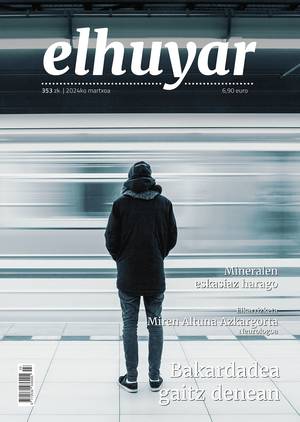Small animals see the world in slow motion
_article_big.jpg)
Small animals capture the information around them in their slow motion, that is, they acquire more information than large animals in the same period of time. This is what a study published in the journal Animal Behaviour says.
Research has been conducted at Trinity College Dublin and results indicate that small animals can observe their movements at a thinner time scale than large ones, allowing them to escape from large dams.
“The ability to detect time on a very small scale can be the difference between life and death in these animals,” researcher Kevin Healy told the BBC.
For example, insects and small birds can get more information in a single second than elephants.
Researchers have also observed the difference between individuals in humans. For example, athletes can process visual information more quickly. In addition, this speed has a lot to do with age: young people react faster than adults.
Researchers at Trinity College have conducted several studies to reach these conclusions. First, changes in the perception of time of different animal species have been measured. To these results are added others. The technique called “critical flicker fusion frequency” has studied the speed at which the eyes can process light. Following the pooling of all data, the results obtained have shown the direct relationship between body size and the ability to respond quickly to information changes through vision.
According to this study, squirrels, arabazos and pigeons are some of the animal species with faster visual systems.
Research has focused mainly on vertebrates, but the scientific team has also collected significant data on some species of flies. According to them, the eyes of these species can react to stimuli four times faster than the human eye.
“Outside there is a world of small details that we are discovering that only a few animals can intercept,” Scottish researcher Graeme Ruxton of St Andrews University, who has participated in the research, told the BBC. “Your eyes send the brain update data more frequently than ours. And this has no value if the brain does not have the ability to process it as quickly. Therefore, this work highlights the great brain capacity of smaller animals,” the scientist added.





